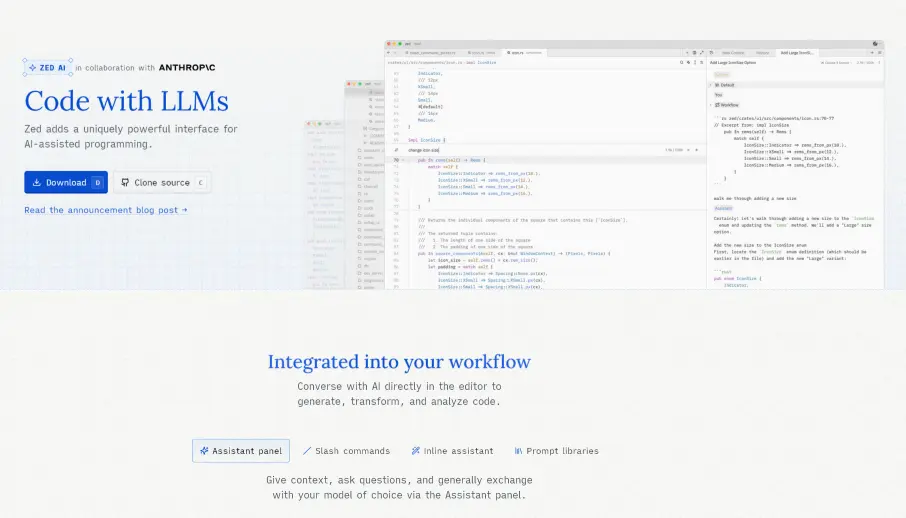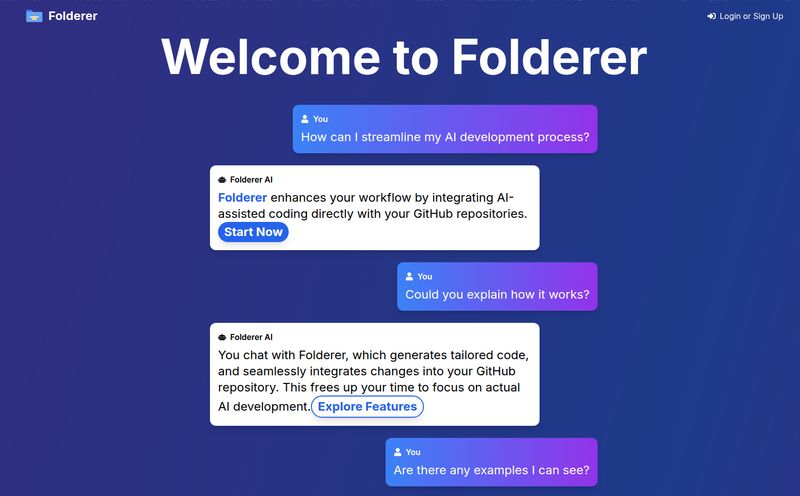We've all been there. You stumble upon a promising GitHub repository. It could be the solution to all your problems, the missing piece of your project puzzle. You click the link, your heart full of hope, only to be met with a labyrinth of folders, a vague README file, and thousands of lines of code. Your shoulders slump. You sigh. Now you have to spend the next three hours just figuring out what the heck this thing actually does and how it's put together. It's what I like to call 'code archaeology', and honestly, I don't always have the energy for it.
So, when a tool pops up with a name like OpenRepoWiki and calls itself “A Wikipedia for GitHub repositories,” my ears perk up. A Wikipedia for code? A tool that promises to explain how repos are made without me having to decipher every single line myself? Sign me up. But as any seasoned dev knows, promises are cheap. I had to see for myself if this was the real deal or just another shiny object.
So, What Is OpenRepoWiki, Really?
The concept is beautifully simple. OpenRepoWiki aims to be a community-driven encyclopedia that breaks down public GitHub repositories. Instead of you having to clone the repo and trace function calls until your eyes cross, you can (in theory) just pop the repo's URL into OpenRepoWiki and get a summary. It focuses on identifying the core features and explaining the general architecture.

Visit OpenRepoWiki
Think of it like the Cliff's Notes for a massive novel. You wouldn't rely on it to write a literary analysis paper, but it's fantastic for quickly grasping the main plot points, characters, and themes before you decide to read the whole thing. It’s designed to be a time-saver, a first stop to help you get your bearings in a new and potentially complex codebase. A noble goal, for sure.
My First Impressions: A Clean Start with a Few Bumps
Hopping onto the site, I was greeted by a clean, minimalist interface. No fluff, no marketing nonsense. Just a search bar and a clear call to action: "Enter GitHub URL." I love this. It shows a tool that knows what it's for. I grabbed a URL for a moderately complex tool I use and plugged it in.
The process is straightforward—you search, and it's supposed to pull up the wiki entry. Now, in the spirit of full transparency, I did hit a '404 - Page Not Found' error on one of my attempts. And you know what? That didn't even bother me. It's a sign of a new platform, one that's still growing and finding its feet. It felt... authentic. This isn’t some mega-corp product with a billion-dollar polish; it feels like something built by developers, for developers, and that comes with a few rough edges. The important pages like the Repo List and Add Repo seemed to work just fine.
The Big Idea Behind Simplified Repos
Why is a tool like this even necessary? Because developer time is finite and precious. Whether you're a junior dev trying to learn from established projects, a senior dev evaluating a new library for your tech stack, or a product manager just trying to understand what your team is working with, the initial barrier to entry for a new codebase can be huge. OpenRepoWiki tries to lower that barrier. It's a digital cartographer, trying to map out the territory before you go exploring.
The Good, The Bad, and The Code
Like any tool, especially one relying on a community, it has its brilliant highs and potential lows. Let's break it down.
The Upside: Why You Might Just Love It
The primary advantage is speed. I once lost an entire afternoon trying to figure out if a specific open-source charting library supported a weird, niche feature our client needed. I had to clone the repo, run the demo, and then dig through the source code, all to come up empty. A quick summary from a tool like OpenRepoWiki could have told me that in five minutes. That’s a massive win.
It’s also a fantastic learning aid. For developers who are still building their confidence, looking at a huge project like React or TensorFlow is terrifying. A curated explanation that says, "Start here, this is the main logic, and this folder handles all the rendering stuff," is incredibly empowering. It turns a mountain into a series of manageable hills.
The Caveats: Where It Might Falter
The biggest challenge for OpenRepoWiki is its very nature. It's a wiki. That means it relies entirely on community contributions. This is both its greatest strength and its most significant weakness. If a repository isn't popular, there's a good chance it won't have an entry. An entry could be incomplete. Or, even worse, it could be outdated if the repository has gone through a major refactor.
We see this with Wikipedia all the time. For mainstream topics, it's amazing. For obscure topics, it can be a barren wasteland. The same principle applies here. You'll probably find great explanations for popular tools, but for that little utility library with 50 stars? You might have to write the entry yourself.
Who Is This Tool Really For?
I can see a few groups getting a ton of value out of this. Junior developers and students are at the top of the list. It’s a great way to peek under the hood of real-world applications without getting overwhelmed. Project managers and tech leads could use it for quick evaluations when comparing different libraries or frameworks. And honestly, even for us grizzled senior devs, it's a nice way to get a quick overview before deciding if a deep dive is even worth the time. It's not for everyone, all the time, but it has its moments.
Let's Talk Money: The OpenRepoWiki Price Tag
This is the easy part. How much does it cost? Zero. Zilch. Nada. As of now, OpenRepoWiki appears to be completely free. There's no pricing page, no subscription model, just a tool available for public use. In an industry where everything seems to be moving to a SaaS model, a genuinely useful and free tool is a breath of fresh air. It lowers the barrier to entry to nothing, which is exactly what a community-driven project needs to grow.
The Community-Driven Dream
The success of OpenRepoWiki will ultimately hinge on us—the developer community. The platform gives us a framework to share knowledge, but we have to be the ones to fill it. The 'Add Repo' and 'Queue' features are right there in the main navigation. It’s an open invitation. If you spend a few hours dissecting a repository, why not take an extra 15 minutes to write up a short summary on OpenRepoWiki? You could save the next person hours of work.
It’s the open-source ethos applied not to code, but to the understanding of code. And I think thats a pretty cool idea.
My Take: A Promising Start for a Needed Tool
So, is OpenRepoWiki a perfect, all-knowing oracle for GitHub? No, not yet. Its usefulness is directly tied to the breadth and quality of its community contributions. But is it a fantastic idea with a solid foundation and the potential to become an indispensable tool for developers? Absolutely.
I’m excited to see where it goes. It’s a tool I’ll be keeping in my back pocket. For those moments when I land on a new repo and feel that familiar sense of dread, I’ll be pulling up OpenRepoWiki first. It might not always have the answer, but when it does, it'll be a life saver. Give it a try, and if you can, give back to it. Let's build the code encyclopedia we've all been waiting for.
Frequently Asked Questions (FAQ)
What is OpenRepoWiki?
OpenRepoWiki is a free, community-driven platform that acts like a Wikipedia for GitHub repositories. It provides human-written summaries and explanations of how different codebases are structured and what their core features are, saving developers time.
Is OpenRepoWiki free to use?
Yes, based on the website and lack of a pricing page, OpenRepoWiki is completely free to use. Its value comes from its open and accessible nature.
How does OpenRepoWiki get its information?
The information and explanations on OpenRepoWiki are crowdsourced from the developer community. Users who have studied a particular repository can add an entry or improve existing ones, similar to how Wikipedia works.
What are the main limitations of OpenRepoWiki?
The main limitations are that its coverage can be spotty, especially for less popular repositories. Since the information is community-supplied, it might also be incomplete or become outdated if the source repository changes significantly and the wiki entry isn't updated.
Can I contribute to OpenRepoWiki?
Yes, absolutely! The platform is built on the idea of community contribution. You can add new repository explanations or improve existing ones to help other developers.
Is OpenRepoWiki a replacement for reading the code?
No, not at all. It's best seen as a supplementary tool. It provides a high-level overview to get you started, but it is not a substitute for a thorough code review when you need a deep understanding of implementation details, security, or performance.



